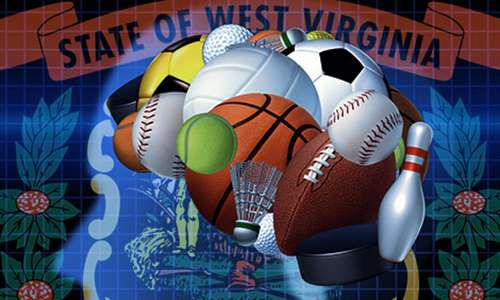West Virginia AG Says Fantasy Sports Not Illegal in State
Originally reported by the Associated Press, West Virginia Attorney General Patrick Morrisey issued an opinion last week saying that real money fantasy sports were not illegal in the state. The opinion, as detailed in a letter on July 7th, was in the form of a response to West Virginia Senate President William P. Cole III, who asked is fantasy sports were prohibited by Senate Bill 529.
SB 529 passed the state Senate by an 18 to 16 vote in February, but was never voted upon by the House. As Morrisey explains, the bill defines a fantasy game as “a fantasy or simulation sports game or educational game or contest” in which:
(1) The value of all prizes and awards offered to winning participants is established and made known to the participants in advance of the fantasy game.
(2) All winning outcomes reflect the relative knowledge and skill of participants and are determined predominantly by accumulated statistical results of the performance of individuals, including athletes in the case of sporting events.
(3) A winning outcome is not based on the score, point spread or performance of a single team or combination of such teams, or on any single performance of an individual athlete or player in a single event.
This essentially mirrors the definition of legal fantasy sports as prescribed in the UIGEA.
Before getting into his reasoning, Morrisey offers up his conclusion, which is:
We conclude that West Virginia does not prohibit the offering of or participation in fantasy sports games, as they are defined in Senate Bill 529. We read state law to prohibit only betting upon games decided at least predominantly by chance. Fantasy sports games, as defined in the Senate Bill, are not so decided. Rather, they are determined predominantly by skill, knowledge, and athletic performance. Because you have not asked, we do not specifically address whether particular fantasy sports games meet the Senate Bill’s definition. But we do note that fantasy sports games, as we have described them in the background discussion above, are likely not decided predominantly by chance.
It is interesting to note that the Attorney General does not specifically say that DAILY fantasy sports are not prohibited, but just fantasy sports in general. It does look like, though, based on the last sentence of the above paragraph, that DFS would not be prohibited.
Later in the fourteen-page letter, Morrisey explains that fantasy participants have to weigh many factors when putting together their lineups, such as player match-ups, venues, weather conditions, injuries, and the like. The salary cap format, in particular, “introduces economic analysis and requires players to strategize how to value players and allocate their roster funds.”
He then compares the role of skill in fantasy sports to its role in poker, implying that fantasy sports actually involve more skill than poker:
And that sort of analysis is, in our view, best described as skill. As one professor has noted, playing fantasy sports is not like playing poker in a casino: you are not “just accepting the cards that you are dealt”—instead, you “pick your cards.” While poker players can bluff and strategically choose their bets, they have no control over cards they are given to make up their hands. But in the fantasy sports games we have described, the participants exercise significant control over their teams. Thus, one federal district court judge has concluded that the “success of a fantasy sports team depends on the participants’ skill in selecting players for his or her team, trading players over the course of the season, adding and dropping players during the course of the season and deciding who among his or her players will start and which players will be placed on the bench.”
Morrisey even expands his opinion to cover sports betting in general. He references a previous Attorney General, who said, “The person making the bet is utilizing his knowledge about the sporting activity in order to enhance his chances of winning. This is the employment of skill.”
It does seem a little odd that the Senator would ask the Attorney General about the legality (or illegality) of fantasy sports as they pertain to a bill that never even became law. Perhaps he was just checking to be sure they were doing things right, although one would think he would pose the question before the bill was drawn up. Morrisey does sort of imply that the Senator is doing it wrong, saying in his opinion, “As with any novel question of law, though, the best course of action may be for the Legislature to pass a law that speaks directly to the lawfulness of fantasy sports games.”



















COMMENTS